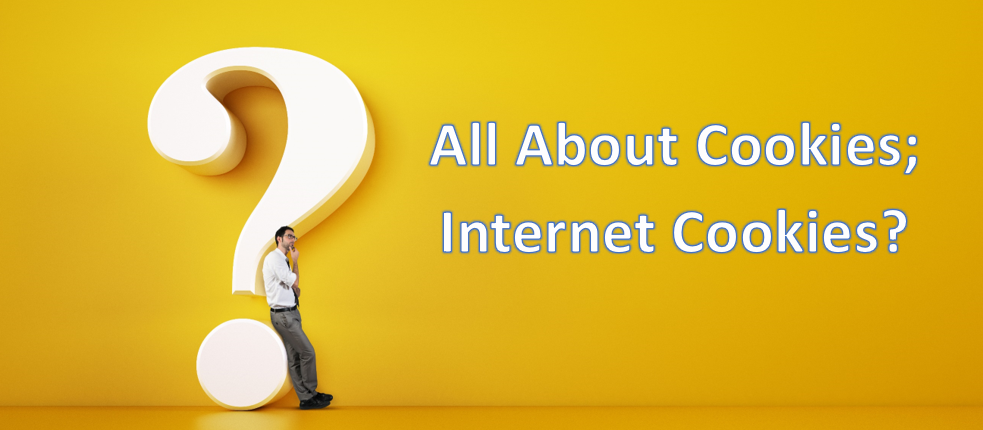A slight detour from talking about Rewarded Video Ads, today’s post is about Cookies -).. not the cookies you enjoy eating, rahter its the cookies that track you in the internet – Internet Cookies GDPR, CCPA, AppLixir and more!
For an easy read, I have put the table of content here >
[ez-toc]
Contents
Imagine entering your favorite coffee shop, and before you say anything, they already have your usual order ready for you. How convenient, right? This is similar to how internet Cookies function.
Cookies are compact text snippets that help the internet recognize you, much like that barista knows your coffee preference. When you visit a website, it hands a Cookie to your browser, which stores it for future reference. When you come back, the site retrieves that cookie and adjusts your experience accordingly.
To paint a clearer picture, consider this: ever notice how items you added to your Amazon cart stay there even after days? That’s cookies in action!
Why Do Websites Use Cookies?
Cookies aim to make our online adventures smoother. By recalling our previous visits and preferences, websites can offer a more personalized experience. Whether it’s keeping you logged in, remembering items in a shopping cart, or tailoring content, cookies serve multiple purposes.
The Cookie Jar: Different Types of Internet Cookies
 As versatile as they are, cookies come in different varieties:
As versatile as they are, cookies come in different varieties:
Magic Cookies: The OG of cookies, these were used by Unix programmers. They acted as encrypted tokens, allowing safe communication between servers and browsers.
HTTP Cookies: Birthed from magic cookies, they were invented by Lou Montulli in 1994. They cater specifically to the internet and lay the foundation for modern cookies.
First-party Cookies: Directly from the sites you visit, these cookies recall what you’ve seen before and adjust the website accordingly. Mostly harmless, they make your browsing smooth.
Third-party Cookies: The talk of the cookie town! These are mainly used for tracking and advertising. They’re not from the sites you visit but are embedded in ads or web elements, like a Facebook ‘Like’ button.
Zombie Cookies: Think of these as the ghosts of the cookie world. Even if you try to get rid of them, they come back, making them notoriously tricky to delete.
Session Cookies: Temporary visitors, they hang around only while you’re on a site. For instance, they ensure the items in your shopping cart stay put as you browse.
Persistent Cookies: The memory champions, they remember if you’re logged in and your user preferences. They stay until they expire or you delete them.
Essential Cookies: The basic cookies that websites ask your permission for. They only run what’s absolutely necessary for the website.
Performance Cookies: These monitor how you interact with a site, providing insights for website improvement.
Functionality Cookies: Ensuring the website runs optimally according to your preferences, like language settings.
Advertising Cookies: Ever searched for something and then saw ads related to it everywhere? Thank these cookies!
Why the Cookie Pop-Ups?
Lately, you’ve probably seen many sites ask about your cookie preferences. This stems from regulations like the EU’s GDPR and California’s CCPA, ensuring websites explicitly state their cookie usage.
 GDPR : The Guardian of European Digital Privacy
GDPR : The Guardian of European Digital Privacy
A significant aspect of the GDPR is its stance on cookies. Cookies often store personal information, which the GDPR classifies as personal data if it can be used to identify an individual, either directly or indirectly. Hence, websites are now obligated to inform users about the cookies they use and get explicit, informed consent before placing any non-essential cookies on a user’s device. This is why many websites now showcase a cookie banner or pop-up to European visitors, ensuring transparent communication and securing user consent.
CCPA : California’s Step towards Digital Transparency
Close on the heels of GDPR, the California Consumer Privacy Act (CCPA) was passed in 2018 and took effect in January 2020. It grants Californians the right to know what personal data is being collected about them, whether their data is being sold, and the ability to deny the sale of their information.
This has led to many websites providing clear cookie notices and options to manage or refuse cookie tracking, tailored to Californian visitors.
The Safety Crunch: Are Internet Cookies Safe?
Typical cookies from reputable sites are mostly harmless. They can’t download harmful software, but there are risks like cookie poisoning. So, while regular cookies are safe, the infamous ‘zombie cookies’ might require extra attention and occasional cleaning from your device.
The Debate: Are Third-Party Cookies Safe?
While they can’t identify you, third-party Cookies do know about your interests. Advertisers covet this information, often leading to data being sold without user awareness. If digital privacy is crucial for you, consider blocking these cookies or using tools like ad blockers or VPNs.
In a nutshell, cookies are the unseen helpers making our online experience smoother. Whether you love them for convenience or scrutinize them for privacy concerns, understanding them better is the key to navigating the web more confidently.
Internet Cookies, GDPR, CCPA and AppLixir
AppLixir Reward Video Ads is committed to upholding the highest standards of user privacy and data protection. We are proud to confirm that our platform is fully compliant with all Cookies -related regulations, including the GDPR and CCPA. We believe in transparency and ensure that users are informed about and in control of any data we collect. Our adherence to these regulations not only showcases our dedication to providing a secure environment for our users but also fortifies our promise to maintain trust and integrity in all our operations.



